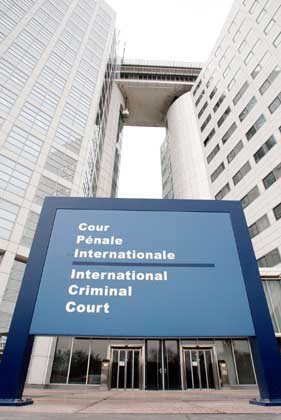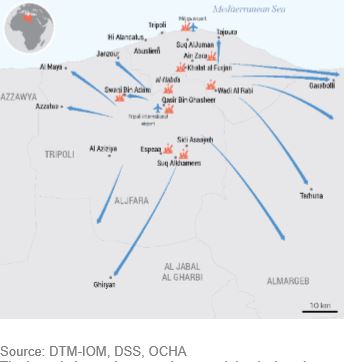By Sami Zaptia.

London, 17 April 2019:
The International Criminal Court (ICC) Prosecutor, Fatou Bensouda, called on all taking part in the fighting in Tripoli to respect the rule of International Humanitarian Law (IHR).
In a statement released yesterday on the violence in and around Tripoli, she said commanders will be held liable and accountable for IHR crimes, as well as those committed by their subordinates. She assured of her determination to pursue all IHR crimes.
Here is her full statement:
”I am deeply concerned about the escalation of violence in Libya in the context of the resurging conflict arising from the advance of the Libyan National Army (“LNA”) towards Tripoli, and related fighting with forces aligned with the Government of National Accord (“GNA”).
As Prosecutor of the International Criminal Court, I call on all parties and armed groups involved in the fighting to fully respect the rules of international humanitarian law. This includes taking all necessary measures to protect civilians, and civilian infrastructures, including schools, hospitals and detention centres. I urge all parties to the conflict not to commit any crimes within the Court’s jurisdiction, and in particular, for commanders to ensure that their subordinates do not do so.
I remind all parties that any person who incites or engages in such crimes including by ordering, requesting, encouraging or contributing in any other manner to the commission of crimes within the jurisdiction of the Court is liable to prosecution.
I also remind all commanders, military or civilian, who have effective control, authority and command over their forces that they themselves may be held criminally responsible for crimes committed by their subordinates. The law is clear: where commanders knew or should have known that crimes are being committed, and they failed and/or neglected to take all necessary and reasonable measures to prevent or repress their commission, they may be held individually criminally accountable.
Following the referral of the situation of Libya by the UN Security Council Resolution 1970 (2011), and in accordance with my mandate under the Rome Statute, my Office is currently investigating several cases in the Libya situation, and continues to actively monitor the developing situation in the country. I will not hesitate to expand my investigations and potential prosecutions to cover any new instances of crimes falling within the Court’s jurisdiction, with full respect for the principle of complementarity. No one should doubt my determination in this regard.”








